IN THE SPOTLIGHT | EAST AFRICA
THE FABULOUS FLAVOUR DIVERSITY OF WORLD’S WILDEST COFFEES
Africa is the birthplace of coffee. From the forests of East Africa, coffee spread all around the world. Today the continent is famous for being home to some of the best coffee origins worldwide: to name some: Yirgacheffe in Ethiopia, Kivu in the DRC, the hills of Rwanda and Burundi and the mountains in Kenya.
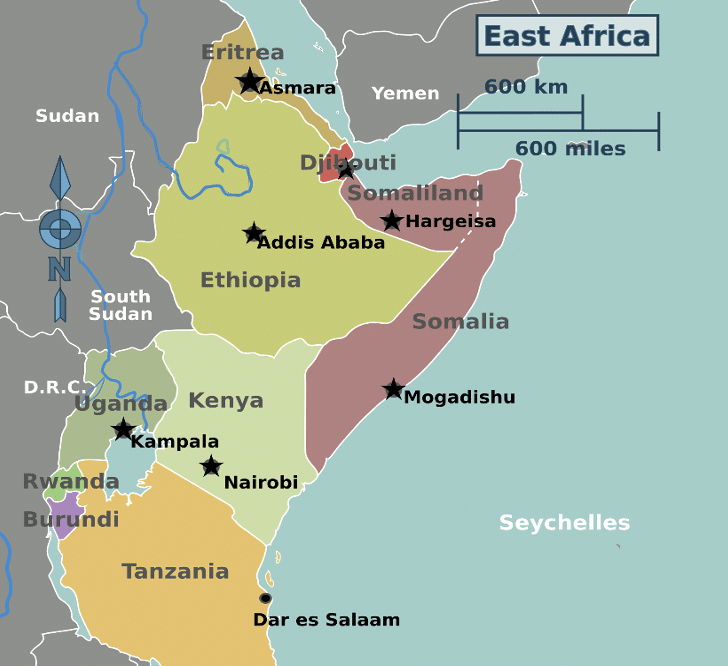
The region is the home of both Arabica and Robusta. The mineral rich African soil, often volcanic, the high altitudes and a favorable climate, all provide perfect conditions for a variety of rich coffee experiences.
There’s a hot, hot, hot debate about which East African country produces the best coffee – but at EFICO we’re not (too) interested in which is the best, as each country offers a wealth of flavour variety. What we intend to do is help you understand what some East African countries have to offer, so you can see which profile best matches your taste and caffeine needs. So please join us on a tasty tour through coffee-rich East Africa.
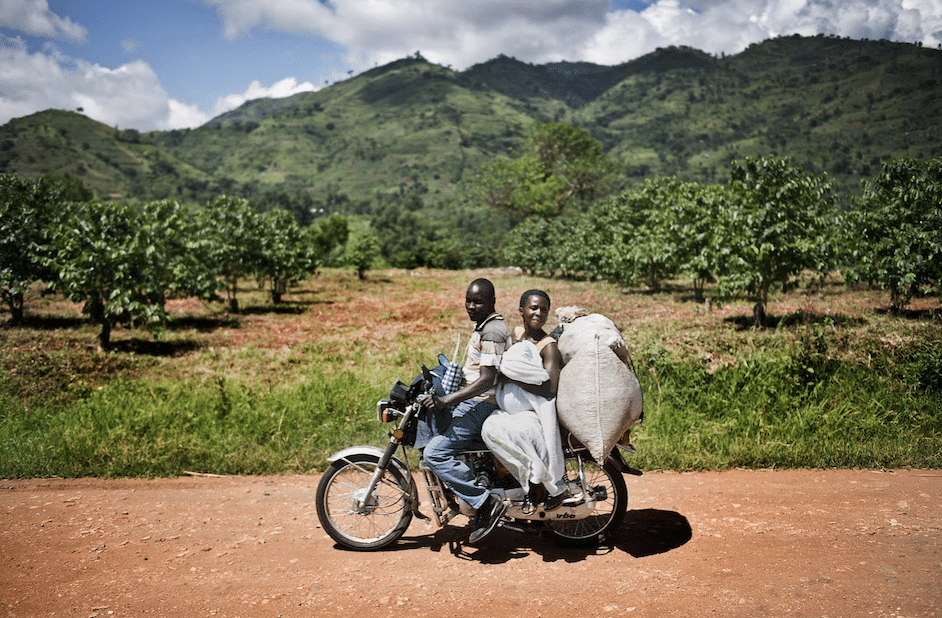
ETHIOPIA
PROUD PARTNERSHIP
“At KURU we make a difference by taking care of sourcing, processing & quality control of all purchased coffees. We source coffee cherries and parchment directly from farmers and washing stations, we are a registered buyer at the ECX and we take care of supervision of the entire supply chain, following national and international requirements. Our wet mills, our coffee processing facilities, our qualitative storage with organised quality inspection and our cupping laboratory all support our vision to provide high qualitative Ethiopian coffee.”
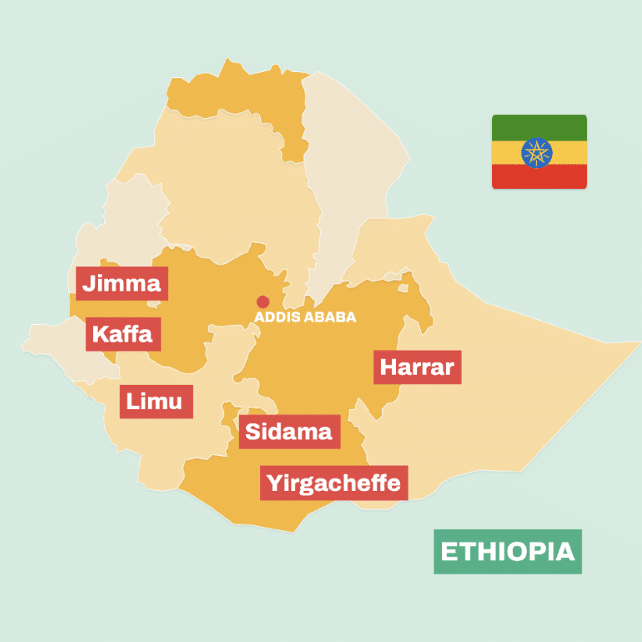
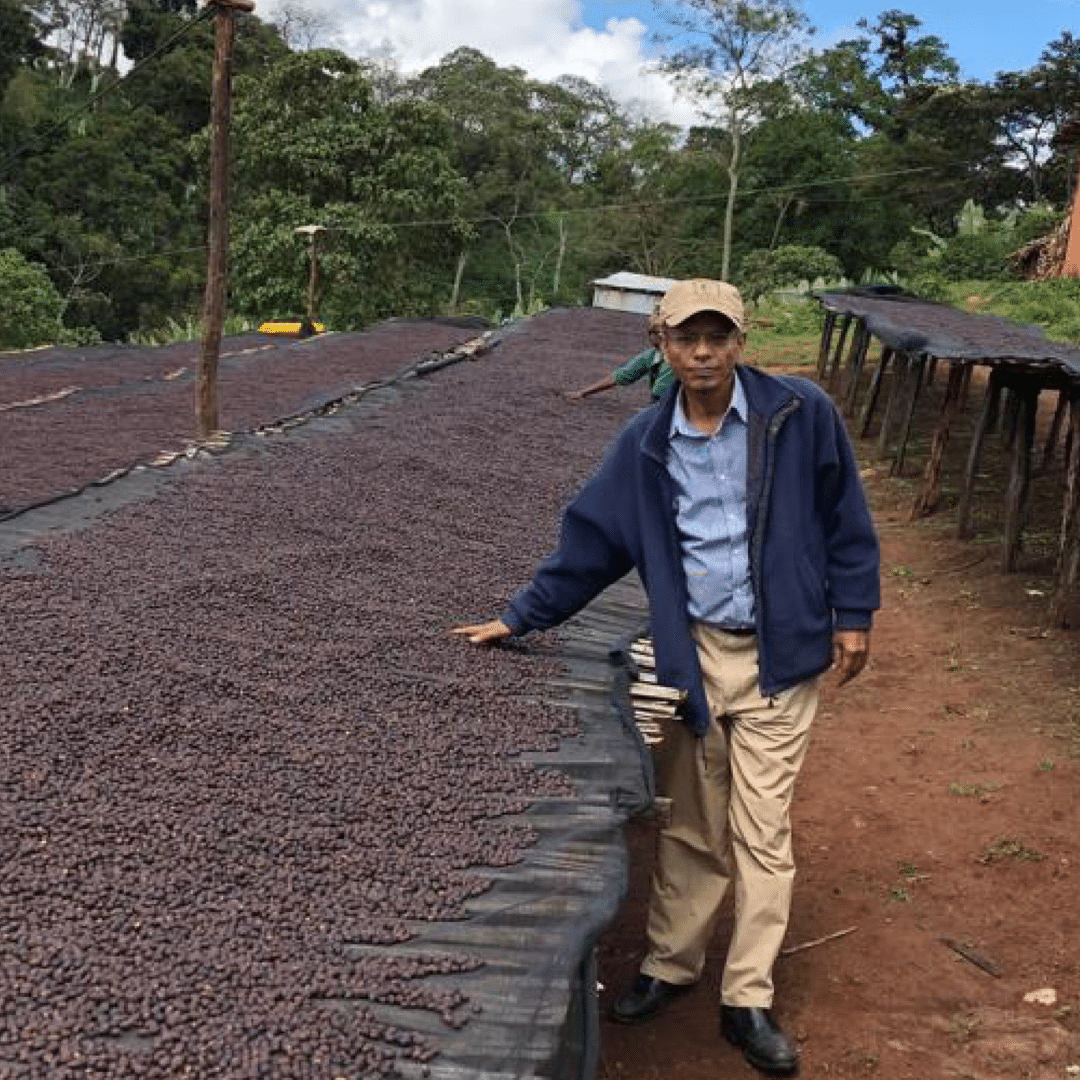
COFFEE ETHIOPIA | FLAVOUR PROFILE
Often noted as the birthplace of coffee, Ethiopia is one of the world’s top coffee-producing nations. The two main processing methods in Ethiopia are the washed and natural processes.
Ethiopian washed coffees usually have a much more muted -but still delicious- balanced flavour profile, moderate-high acidity, and a clean mouthfeel. Naturals end up having a whacky, almost fermented taste to them and can have some unique fruity notes, such as blueberry or raspberry pie, but with not as clean of a mouthfeel.
Ethiopians name (and trademark) their coffees by region. The best way to find the flavours you want, is to search for coffees by region:
SIDAMO : floral, bright, citrus, lemony | YIRGACHEFFE : floral, elegant, juicy, citrus | GUJI : mellow, sweet, complex, jasmine, berries | DJIMMAH : intense, tropical fruits, chocolate, winey | LIMU : fine, cherries, fruity, sweet | LEKEMPTI : fruity, honey, juicy | HARRAR : rich, complex, honey, winey |
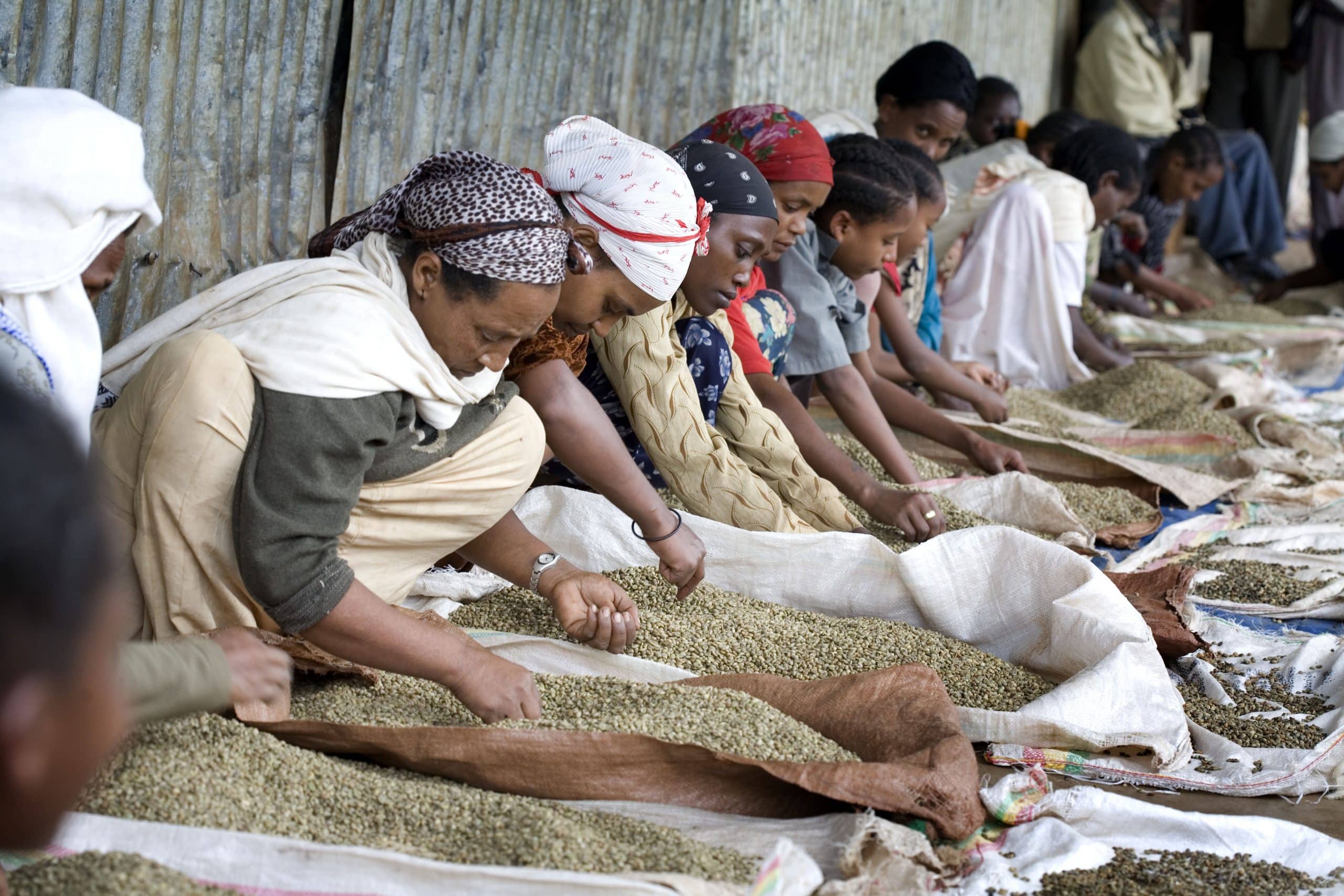
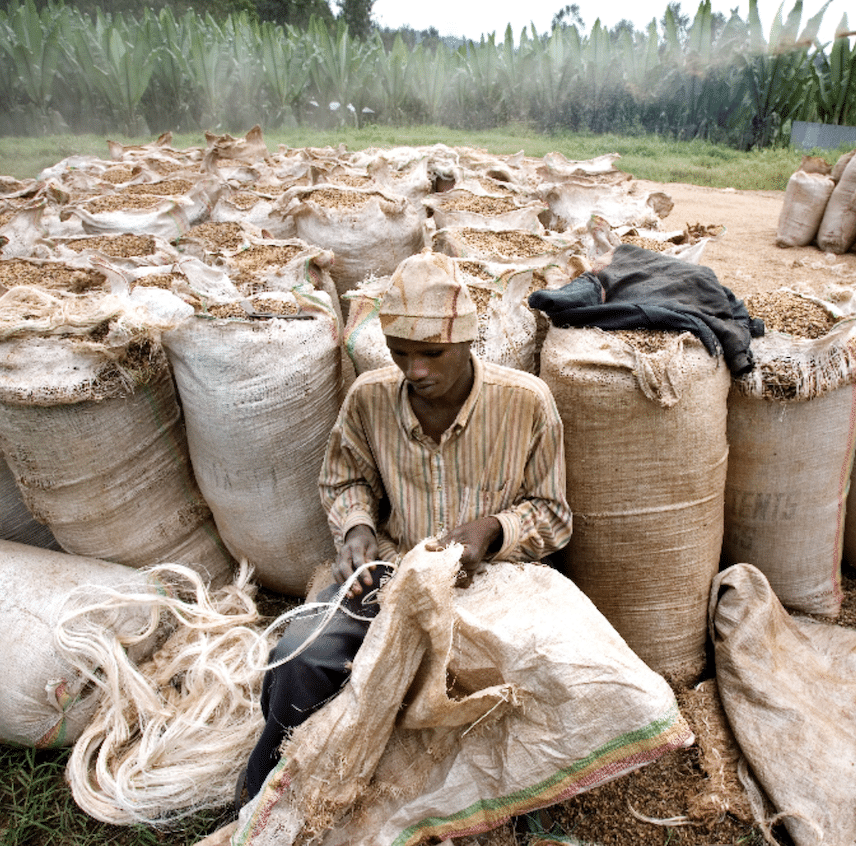
EFICO | ETHIOPIAN COFFEE ASSORTMENT
Harvest normally peaks in November and December, with coffees arriving in our warehouse Seabridge from May onwards. The first coffees to land are always washed, and naturals arrive later in the season.
We have a whole range of Ethiopian coffees to suit everyone’s taste and preference.
➵ You will find a shortlist on our website.
➵ You can always request the full longlist with availabilities and price-settings directly from our traders. You can easily contact them via email or by telephone.
➵ Below we take a closer look at the full specs of our Ethiopian coffee ‘GUJI ‘Bule Hora’ Washed GR2‘
ETHIOPIAN COFFEE IN THE SPOTLIGHT | GUJI ‘Bule Hora’ Washed GR2
REGION
Coffee area: Bule Hora, Guji – Southern Oromia Region
Bule Hora is one of the ‘Woredas’ in the Oromia Region. Woredas or districts are further subdivided into a number of wards (Kebele) or neighborhood associations, which are known as the smallest units of a local government in Ethiopia.
Bule Hora is located within Guji Zone and is named after a tribe of the Oromo people. The Guji Zone was created in September 2002, when the upland Woredas of the Borena Zone were split apart.
Altitude: 1,900 – 2,200 masl
Coffee growing : smallholder farmers, shade grown – type of shade trees: Acacia, Albizia,..
Soil type: rich red, volcanic soil
Rainfalls in mm/year: 1,300
Average annual temperature: 25°C
Harvesting Season: October-January
Arrival times Seabridge : as from May onwards
PROCESS
Picking method: Manual (3 pickings)
Preparation: Washed (24-36 hours fermentation depending on altitude); washing takes place at farm gate & export processing is carried out in Addis Ababa
Drying method: Sun-dried on “African beds” (number of days depends on altitude and rainfall pattern)
THE COFFEE
Species: Arabica
Variety: Bourbon & Typica
Process: Washed
THE CUP PROFILE
Intense fragrance, floral, nice aroma with citric notes, high acidity and medium body, sweet and flowery, juicy and lemony aftertaste. A citrus fruit flavour bomb with strong notes of lemon, a bright citric acidity, and a good medium body and pleasant lemony mouthfeel.
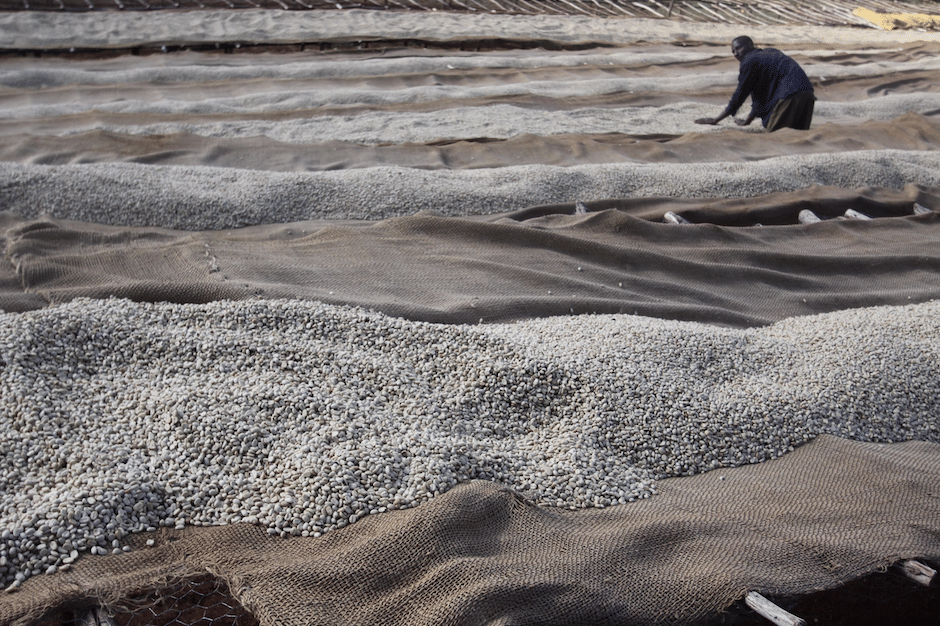
KENYA
PROUD PARTNERSHIP
EFICO’s Kenyans are ‘top quality à la carte’, you could say. EFICO has some Kenyan ‘crème de la crème’ in portfolio that can’t be found anywhere else in Africa…
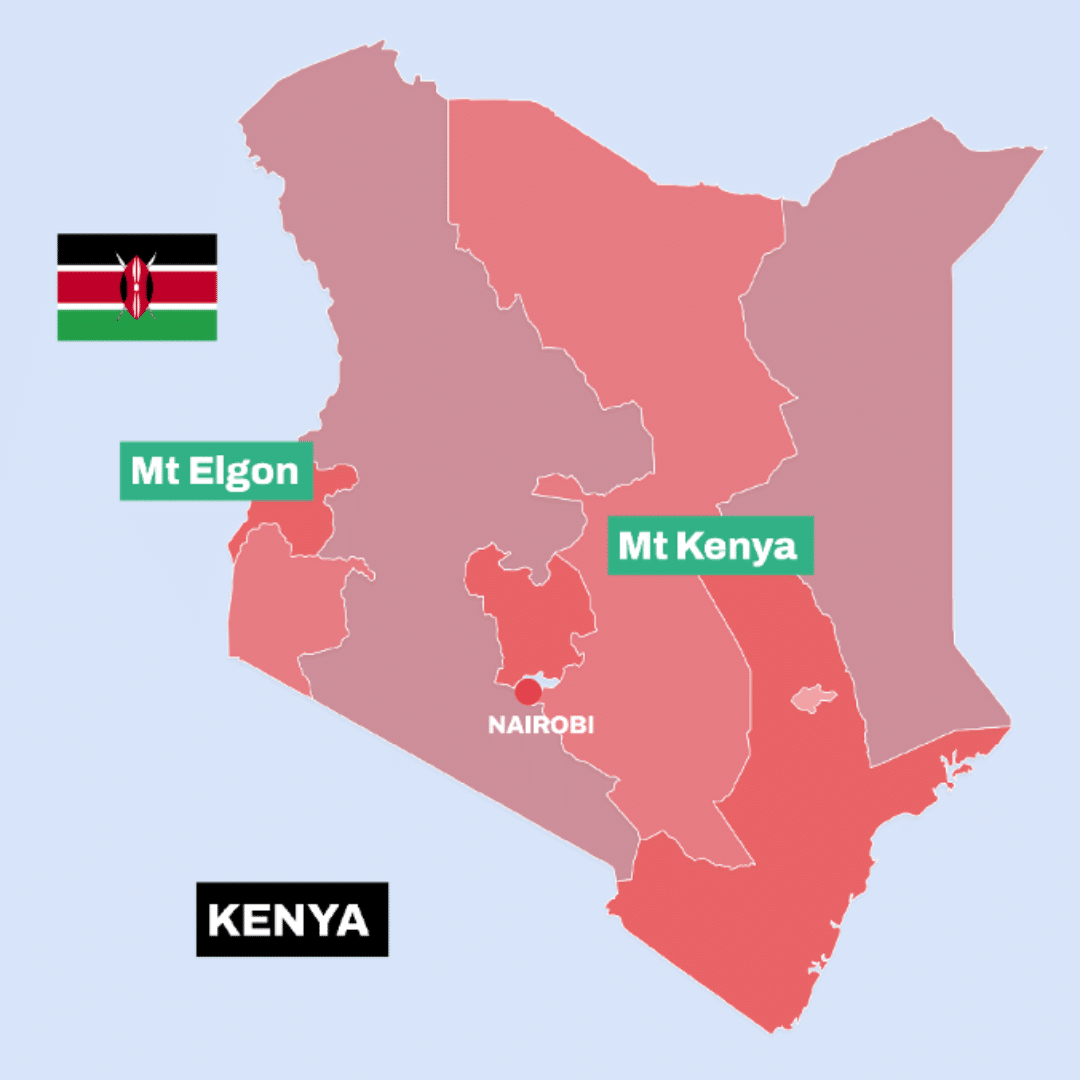
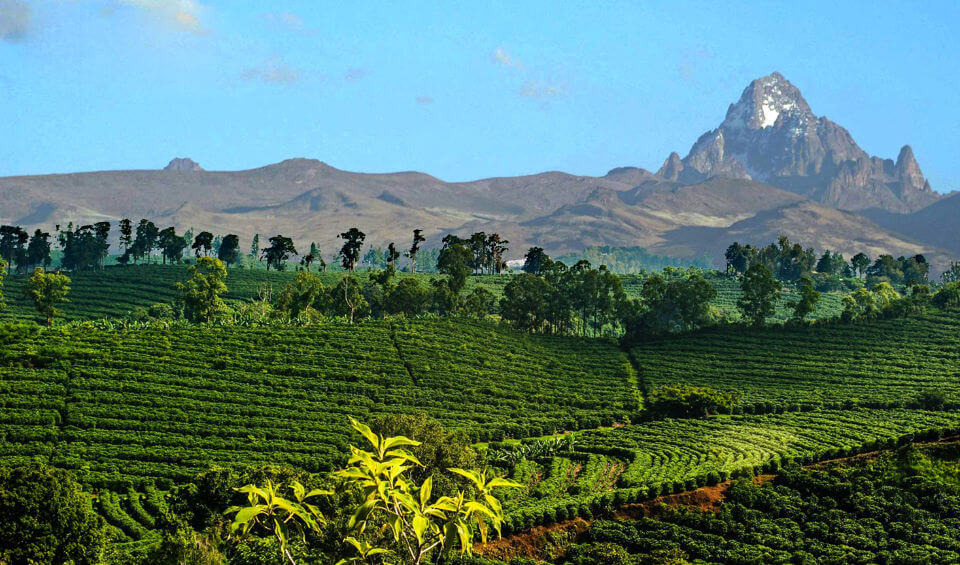
COFFEE KENYA| FLAVOUR PROFILE
Many coffee roasters around the world will opt for Kenyan coffee at least a few times a year. The choice of Kenyan beans is no fluke, and the reason is simple: Kenyan coffee packs a flavour punch! Kenya has the golden combination of rich volcanic soil, high altitude, good infrastructure for transporting coffee and experienced coffee farmers.
Kenyan coffee brings incredible fruity, berry sweetness and a unique acidity that discerns it from almost any other coffee in the world. Look out for the SL28 and SL34 varietals, which originate from Kenya.
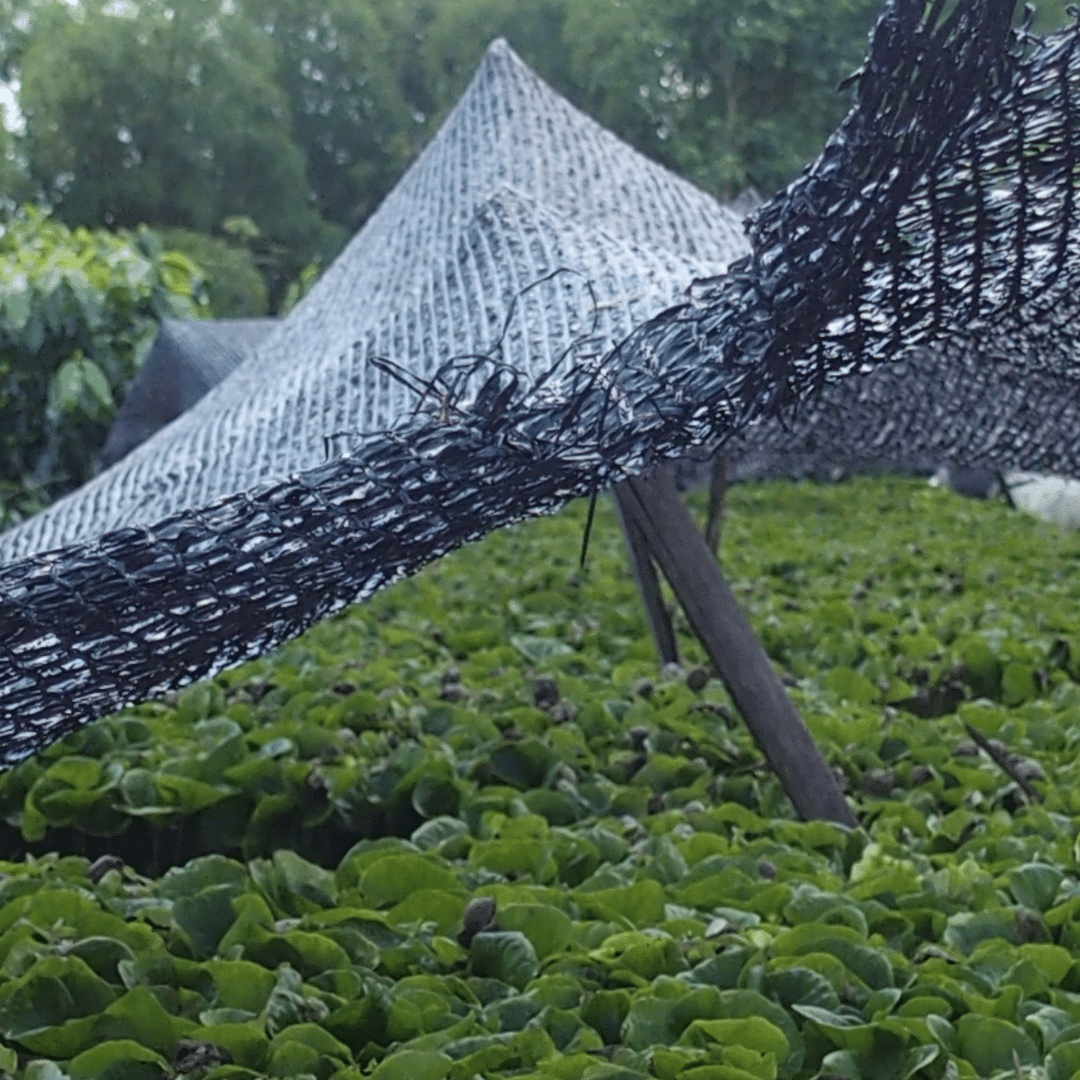

EFICO | KENYAN COFFEE ASSORTMENT
Main harvest is in the end of year – November and December. Cupping for selection usually begins in January. We aim to cup and select early and usually buy in January and February. Coffees have a longer shelf life and can be used more-or-less throughout the year. These coffees are available at Seabridge as from April onwards.
We have a whole range of Kenyan coffees to suit everyone’s taste and preference.
➵ You will find a shortlist on our website.
➵ You can always request the full longlist with availabilities and price-settings directly from our traders. You can contact them via email or by telephone.
➵ Below we take a closer look at the full specs of our Kenyan coffee ‘Top Kiri‘
KENYAN COFFEE IN THE SPOTLIGHT | TOP KIRI
REGION
Coffee area: Central Province, region of Kirinyaga
Altitude:1,450 masl
Coffee growing : Top Kiri is grown in the region of Kirinyaga by the farmers from the villages of Gitumbi, Kirunyuini, Kerere and Kaboia. About 1,200 coffee farmers deliver their cherries to ‘Kiri Washing Station’.
Soil type: red volcanic soil
Rainfalls in mm/year: 1200
Average annual temperature: 25°C
Harvesting Season:October-January
Arrival times Seabridge: as from April
PROCESS
Picking method: Manual
Preparation: After pulping, the coffee is fermented overnight to break down the sugars, before traveling through channels to the soaking tank where the coffee is carefully cleaned, soaked and spread out on the raised drying tables.
Drying method: Sun-dried on “African beds” . The time on the drying tables depends on climate, ambient temperature and total production volume undergoing processing. Drying can take from 7 to 15 days in total. Continuous sorting and hand turning of the parchment takes place throughout the drying process.
THE COFFEE
Species : Arabica
Variety: SL 28, SL 34, Ruiru 11 & Batian
Process: Washed
THE CUP PROFILE
Cupping notes: Vanilla, Red Fruits, Lemon, Almonds
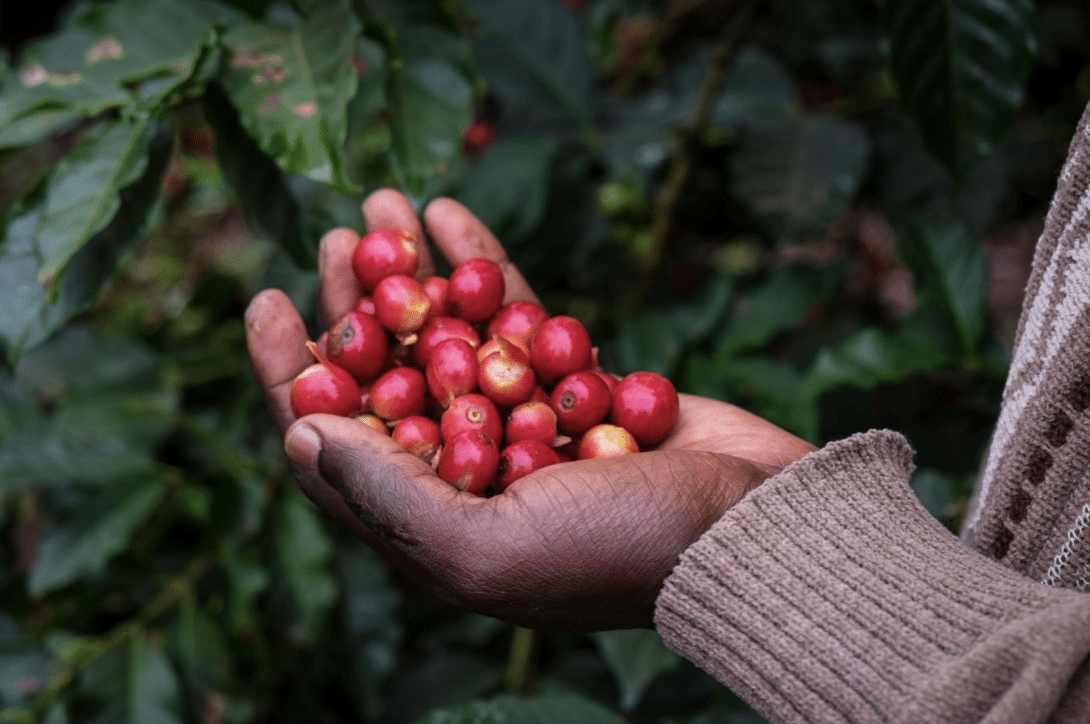
RWANDA
PROUD PARTNERSHIP
In Simbi’s first year of operation, Abdul decided to submit a coffee sample for the Rwandan Cup of Excellence competition. They took 9th place, an incredible achievement considering the very newcomer status!

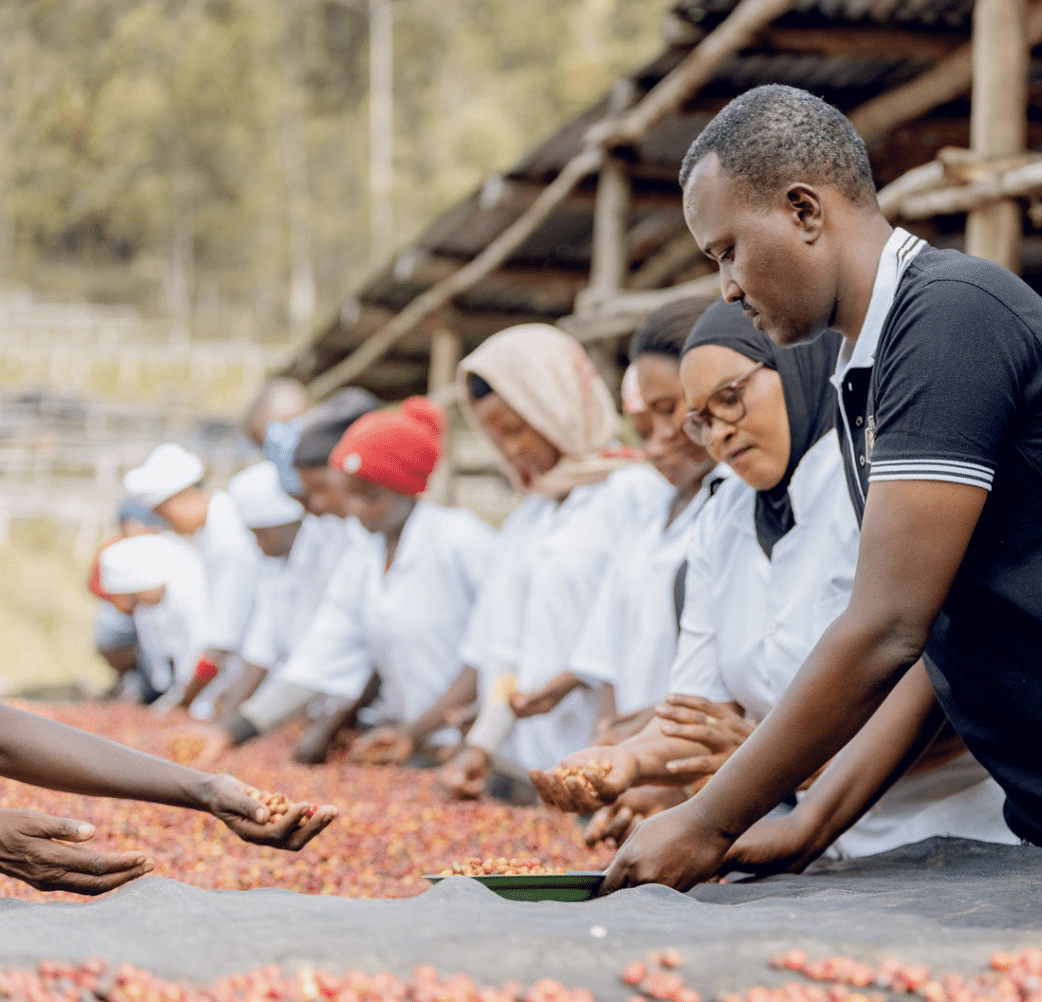
COFFEE RWANDA| FLAVOUR PROFILE
Located in the Huye District of Rwanda’s Southern Province, the Simbi Washing Station serves 1,475 smallholder coffee farmers, all of whom grow high-quality red bourbon. Simbi is a privately owned washing station operated by Abdul Rudahunga. Abdul’s grandmother – a coffee farmer and one of the few rural Rwandans that roasted and enjoyed her own coffee as part of her daily routine – inspired him to get into the coffee business.
In Simbi’s first year of operation, Abdul decided to submit a coffee sample for the Rwandan Cup of Excellence competition. They took 9th place, an incredible achievement considering the very newcomer status!
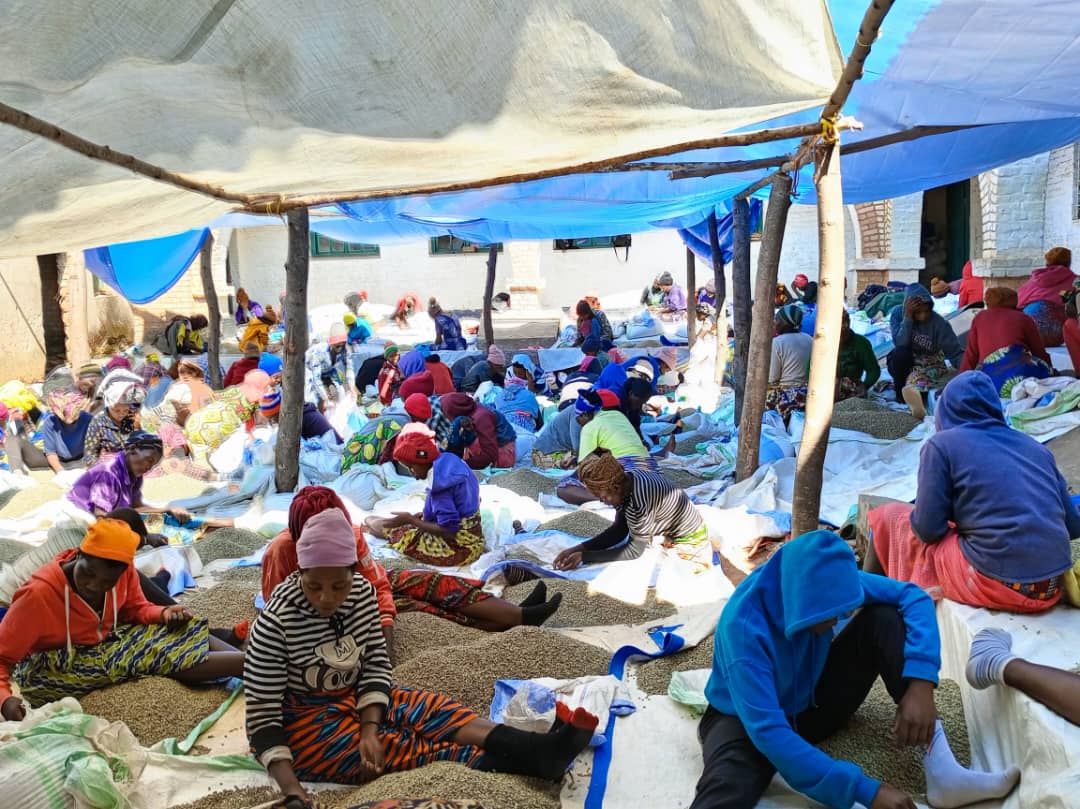
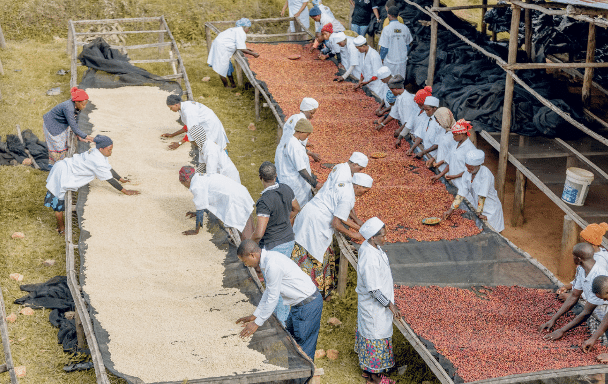
EFICO | RWANDAN COFFEE ASSORTMENT
Harvest season in Rwanda can vary quite a bit from year to year, so we will see this happen anytime from April to July. We generally see the first coffees land in November.
We have a whole range of Rwandan coffees to suit everyone’s taste and preference.
➵ You will find a shortlist on our website.
➵ You can always request the full longlist with availabilities and price-settings directly from our traders. You can easily contact them via email or by telephone.
➵ Below we take a closer look at the full specs of our Rwandan coffee ‘SHANGA FULLY WASHED’
RWANDAN COFFEE IN THE SPOTLIGHT | SHANGA FULLY WASHED
REGION
Coffee area: Huye is one of the eight districts (Akarere) that make up Rwanda’s Southern Province. Huye district is divided into 14 sectors (imirenge): Gishamvu, Karama, Kigoma, Kinazi, Maraba, Mbazi, Mukura, Ngoma, Ruhashya, Huye, Rusatira, Rwaniro, Simbi and Tumba.
Altitude:1,980 – 2,250 masl
Coffee growing : 1,475 smallholder coffee farmers bring each crop their cherries to Simbi Washing Station.
Soil type: sandy clay soil
Rainfalls in mm/year: 1,150
Average annual temperature: 19°C
Harvesting Season: April-July
Arrival Seabridge: As from November onwards
PROCESS
Picking method: The smallholder farmers selectively handpick cherry and deliver it to Simbi Washing Station.
Preparation: After being handpicked and depulped, the beans are fermented wet and sorted by density using water filled grading channels.
Drying method: The beans are then first dried under cover for 24 hours and then dried for 15 to 18 days on African beds in direct sunlight.
Screening and sorting method: Manual and mechanical
THE COFFEE
Species: Arabica
Variety: Bourbon
Process: Fully Washed
THE CUP PROFILE
Delicate aromas with notes from stonefruit, pronounced acidity, harmonious body; hints of chocolate, milk & hazelnuts chocolaty prolonged by a suave length in the mouth reminiscent of caramel.
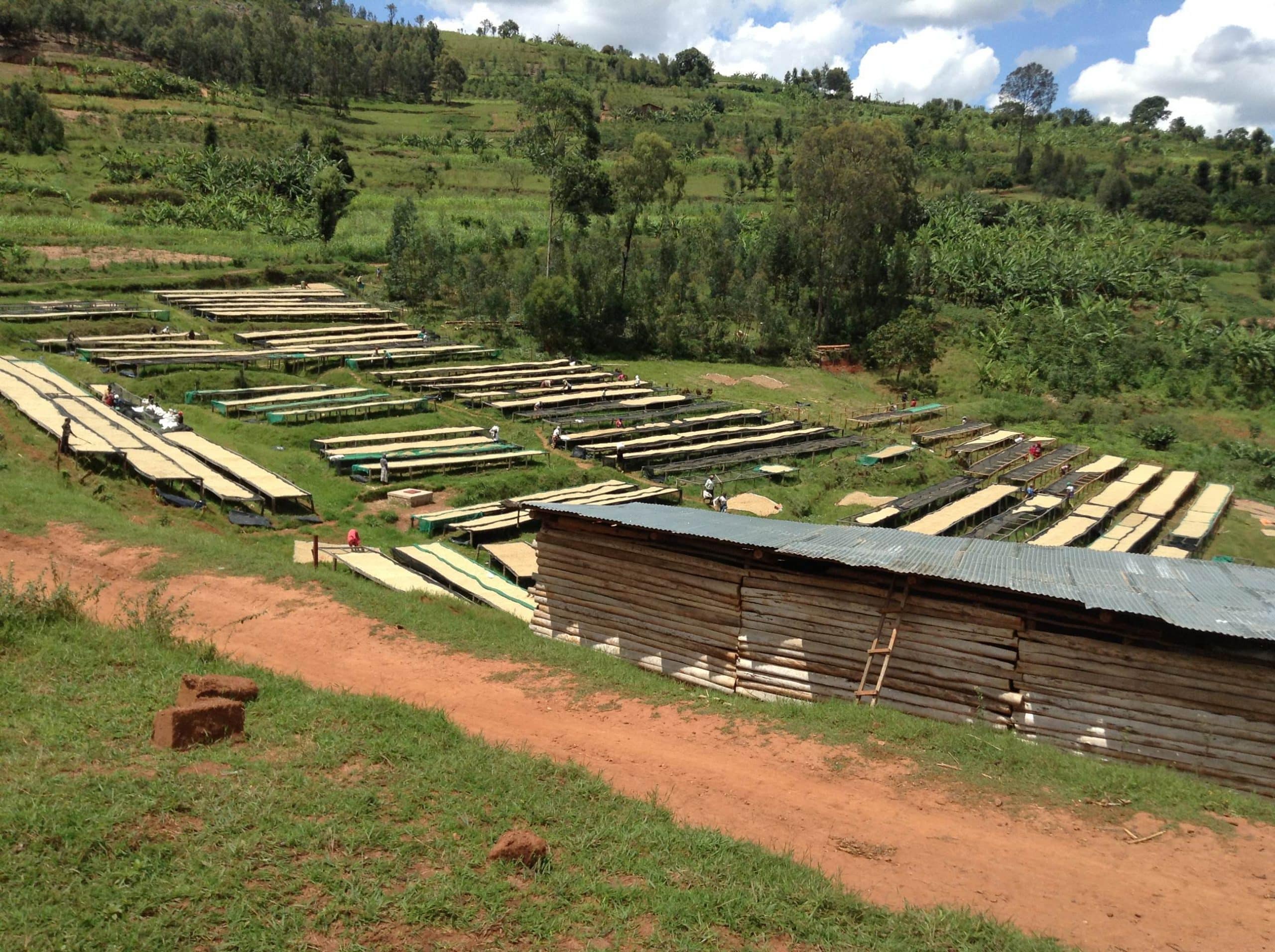
BURUNDI
PROUD PARTNERSHIP
The slogan of KALICO’s family business is ‘Generations of Experience’, and that’s just one of the many reasons why we are happy with this loyal and long-lived Burundian collaboration. Kalico’s coffees have a consistent taste profile that never disappoint. Alexandre & his team know what flavours EFICO’s partner/roasters are looking for.
Kalico operates in Northeast Burundi, where five beautiful lakes meet in the provinces of Kirundo and Muyinga. The company now consists of 7 large washing stations.
Mrs Angele Ciza was the first woman to run a business in the Burundian coffee industry in 1995. In 2012 Angele founded the family company Kalico. After Angele’s passing (August 2022), her son Alexandre Shaka Mugisha took over the management of the company. Alexander’s latest project is the implementation of a digital traceability system to connect buyers with the origin of their coffee. Alexandre is committed to modernise business processes and preserving the traditional values of the coffee company.
“Pretty soon, my mother and I knew they had to start educating the farmers, so we started outreach to ensure best practices from farms to picking. As the quality and value of the coffee increases, Kalico invests in additional training, environmental protection, inputs, micro credit, micro insurance and social infrastructure in partnership with the producer organisations that supply our washing stations.”
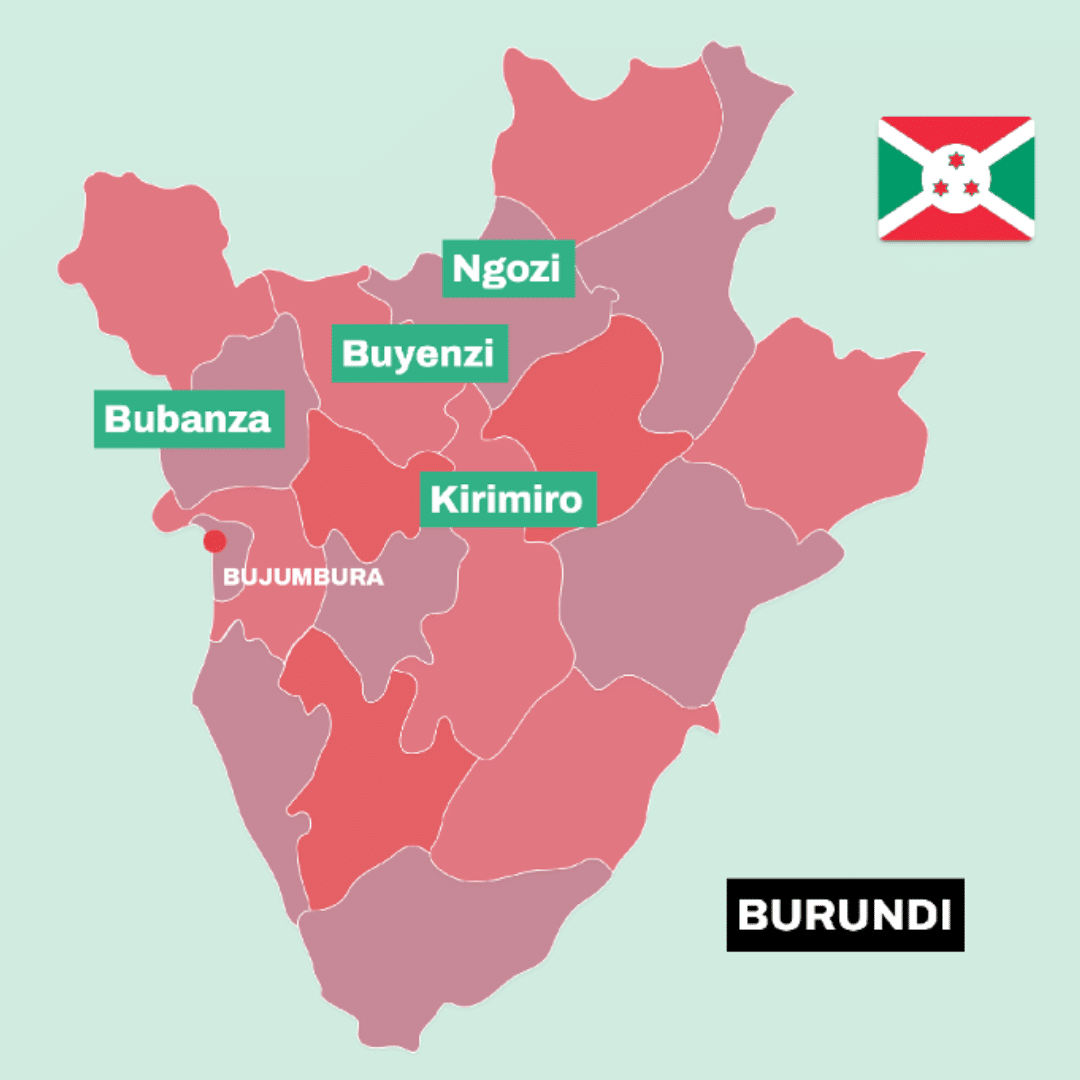
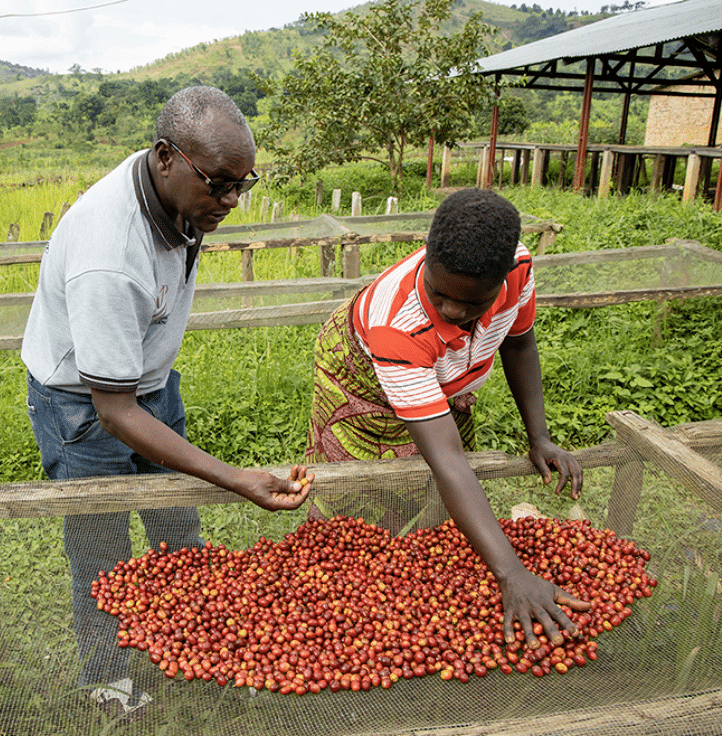
COFFEE BURUNDI | FLAVOUR PROFILE
A similarly small country that borders Rwanda, coffee from Burundi isn’t too dissimilar from that of its neighbour. Its mountainous terrain provides ideal growing conditions for the mostly Bourbon varieties that are cultivated here. Burundian coffees generally feature very clean, fruity notes with a heavy focus on berries and red fruits such as cherries.You may also come across smooth flavours such as caramel, which can make for a more dynamic drinking experience.
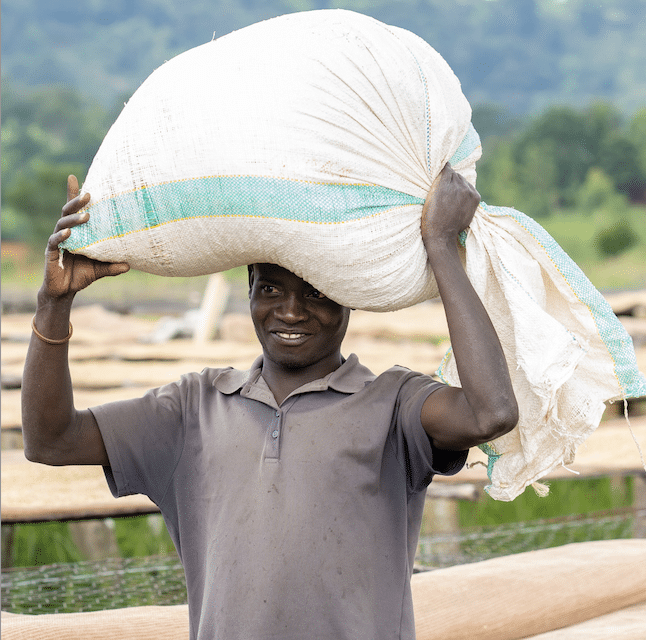
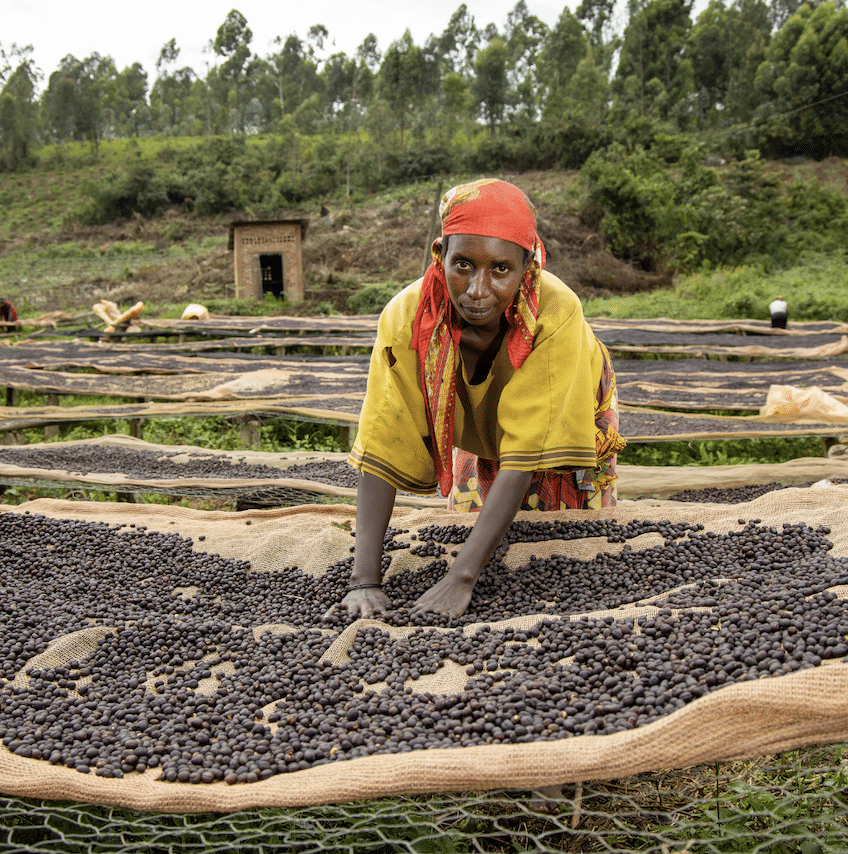
EFICO | BURUNDIAN COFFEE ASSORTMENT
The Burundi coffee harvest begins at the end of March or early April, up to July. Typically, and with fingers crossed, arrival time in our warehouse Seabridge is either November of December.
We have a whole range of Burundian coffees to suit everyone’s taste and preference.
➵ You will find a shortlist on our website,
➵ You can always request the full longlist with availabilities and price-settings directly from our traders. You can contact them via email or by telephone.
➵ Below we take a closer look at the full specs of our Burundian coffee ‘BUTHINDA FULLY WASHED‘
BURUNDIAN COFFEE IN THE SPOTLIGHT | BUTHINDA FULLY WASHED
REGION
Coffee area: Muyinga region in the northeast of Burundi
Altitude: 1,650-1,700 masl
Growing: Buthinda Washing Station serves 1,000-3,000 small-scale farmers who grow primarily bourbon varietal in the surrounding hills
Soil type: volcanic
Rainfalls in mm/year: 1,500 to 1,800
Average annual temperature: 20°C
Harvesting Season: April – July
Arrival Seabridge: as from November onwards
PROCESS
Picking method: manually
Preparation: fully washed at Buthinda Washing Station, 14h of fermentation,
Drying method: sun-dried on dry beds during a period, depending on the weather
Screening and sorting method: manually
Species: Arabica
Variety: Bourbon
Process: Fully washed
CUP PROFILE
This lot is a tropical paradise of fruit flavours on a base of creamy chocolate. This coffee is characterised by a chocolaty-caramel aroma, sweetness, cleanliness, a silky body, a lively acidity and a long aftertaste.
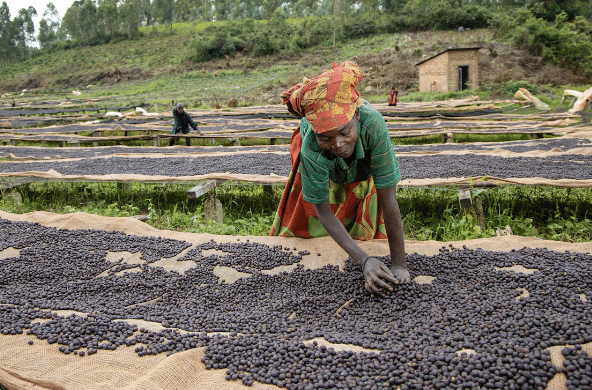
TANZANIA
PROUD PARTNERSHIP
Born and raised in Colombia, Alejandro Galante knows a thing or two about growing great green coffee. When Alejandro travels to Tanzania, he watches the coffee game and is blown away by the flavours. He can’t believe farm after farm is dying out in the Arusha region. So what does he do? He leases some neighbouring estates from the locals, starts replanting and revives those farms like a pro. And so Africa Plantation Kilimanjaro (APK) was born.
Many of the current coffee trees are ancient, with root stock that is more than 50 years old. They are growing on the slopes towards Mount Kilimanjaro. The altitude is good, the soil is great and the knowledge of how to grow excellent coffee is certainly something that has been in Alejandro’s family for years.
Alejandro doesn’t mess around when it comes to farming. He has strict protocols for irrigation, selective harvesting, controlled fermentation and mechanical drying that are simply next level. And they also have a nursery, a quality control lab and even play with honey and naturally processed batches.
APK has a crew of 300 full-time employees and an additional 5,000 people who come in during the entire harvest season. In addition, it is all about supporting the local community by employing graduates of the Tanzania Coffee Board coffee production course in Moshi.
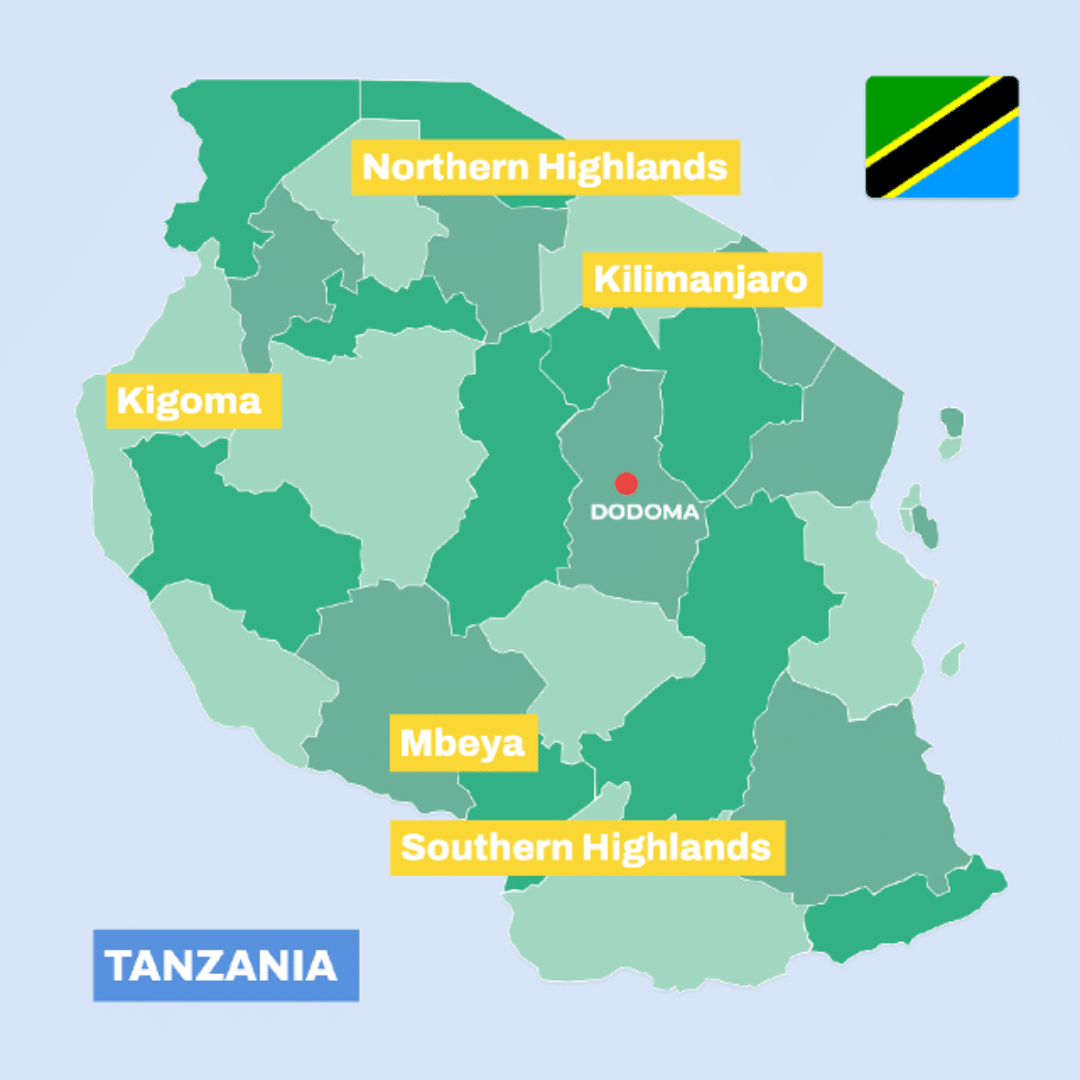
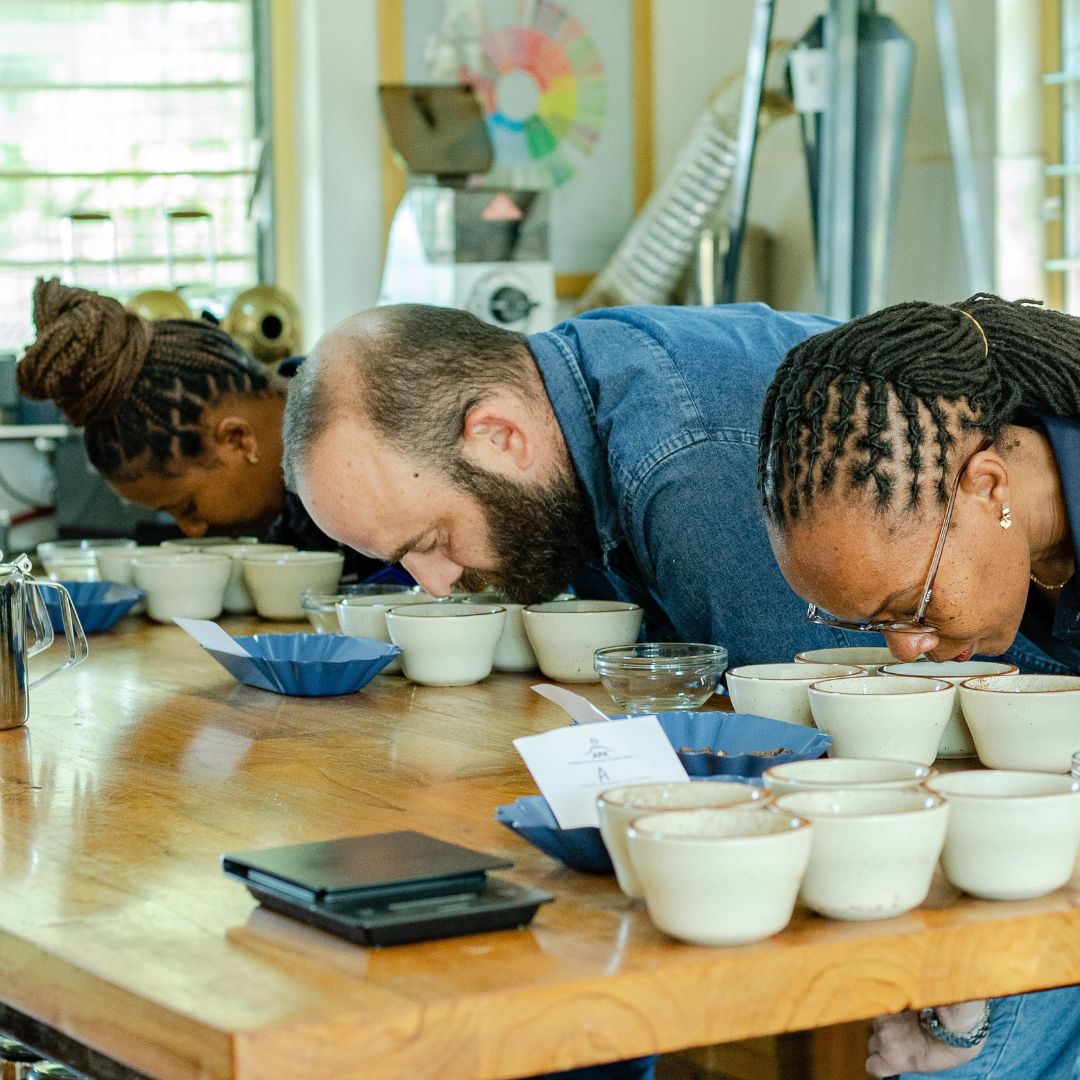
COFFEE TANZANIA | FLAVOUR PROFILE
Tanzanian coffees are often comparable to Kenyan coffees; both countries are therefore perfectly located for growing excellent coffee. Tanzanian varieties tend to be full of notes of honey and nuts that pop up often. Like most other East African coffee beans, Tanzanian coffees can have very spicy fruit flavours, especially red fruits and berries.
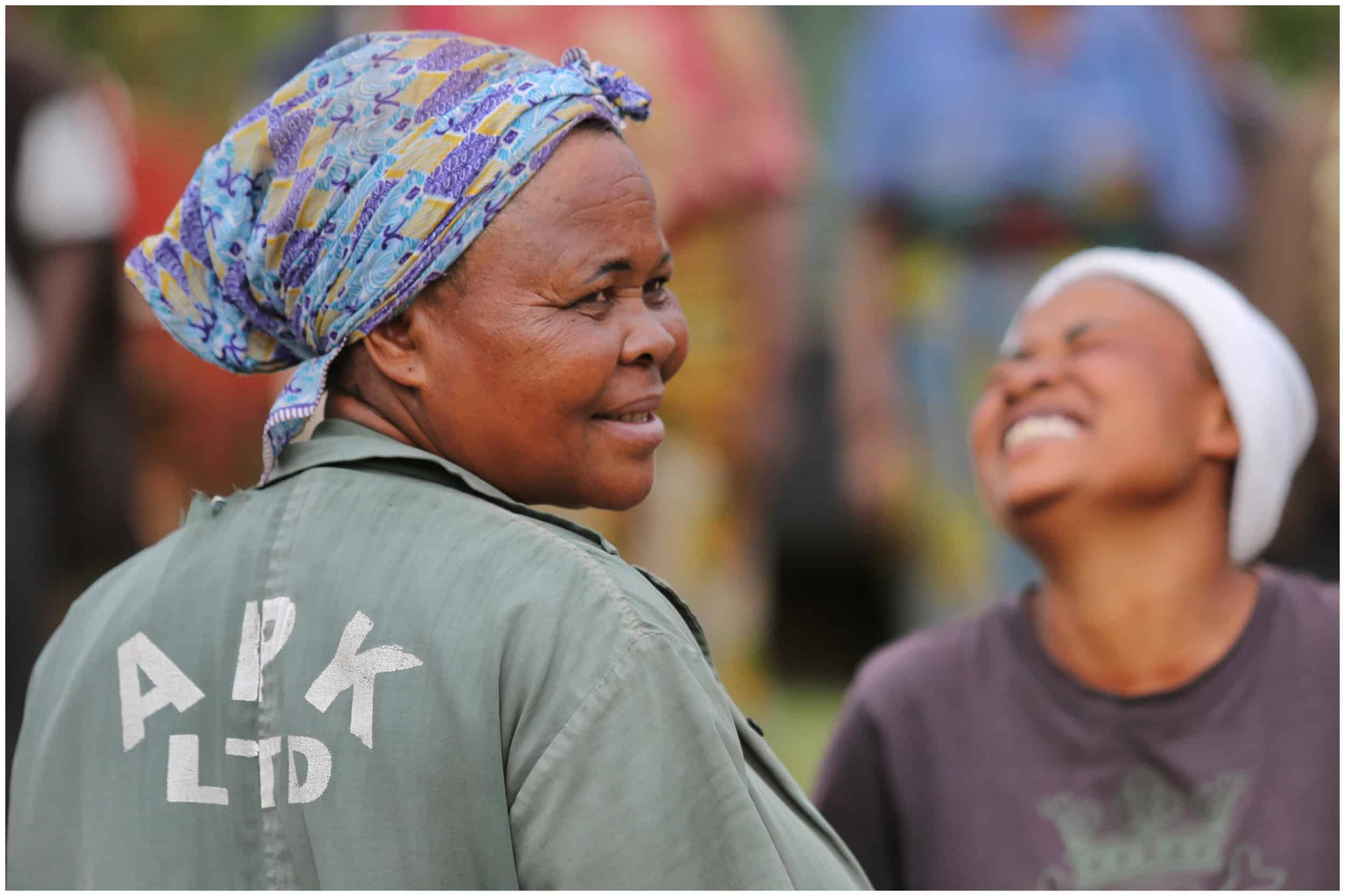
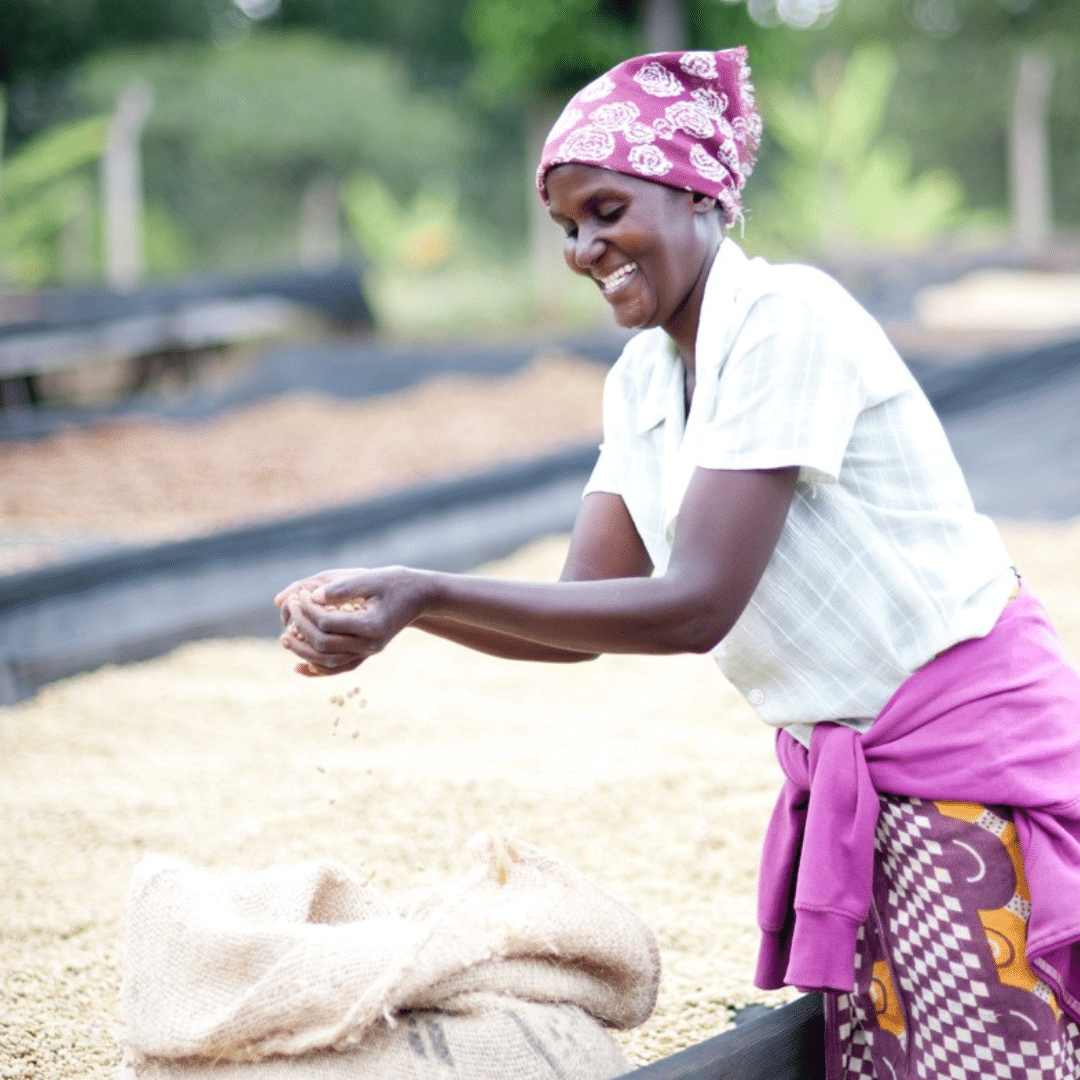
EFICO | TANZANIAN COFFEE ASSORTMENT
Our Tanzanian coffees are grown in the shadow of Mount Kilimanjaro. In this area, harvest runs form July to October, with August being the peak.
Typically, and with fingers crossed, arrival time in our warehouse Seabridge is either November of December.
We have a whole range of Tanzanian coffees to suit everyone’s taste and preference.
➵ You can always request the full longlist with availabilities and price-settings directly from our traders. You can contact them via email or by telephone.
➵ Soon we will have a new Tanzanian coffee with a sustainable story in our portfolio. An exciting new kid on the block that speaks to supportive souls, sparks satisfaction and success, and suits special senses.
If you would like a preview of this newcomer, please contact one of our experts at the trading desk. They are happy to lift a small tip of the veil.
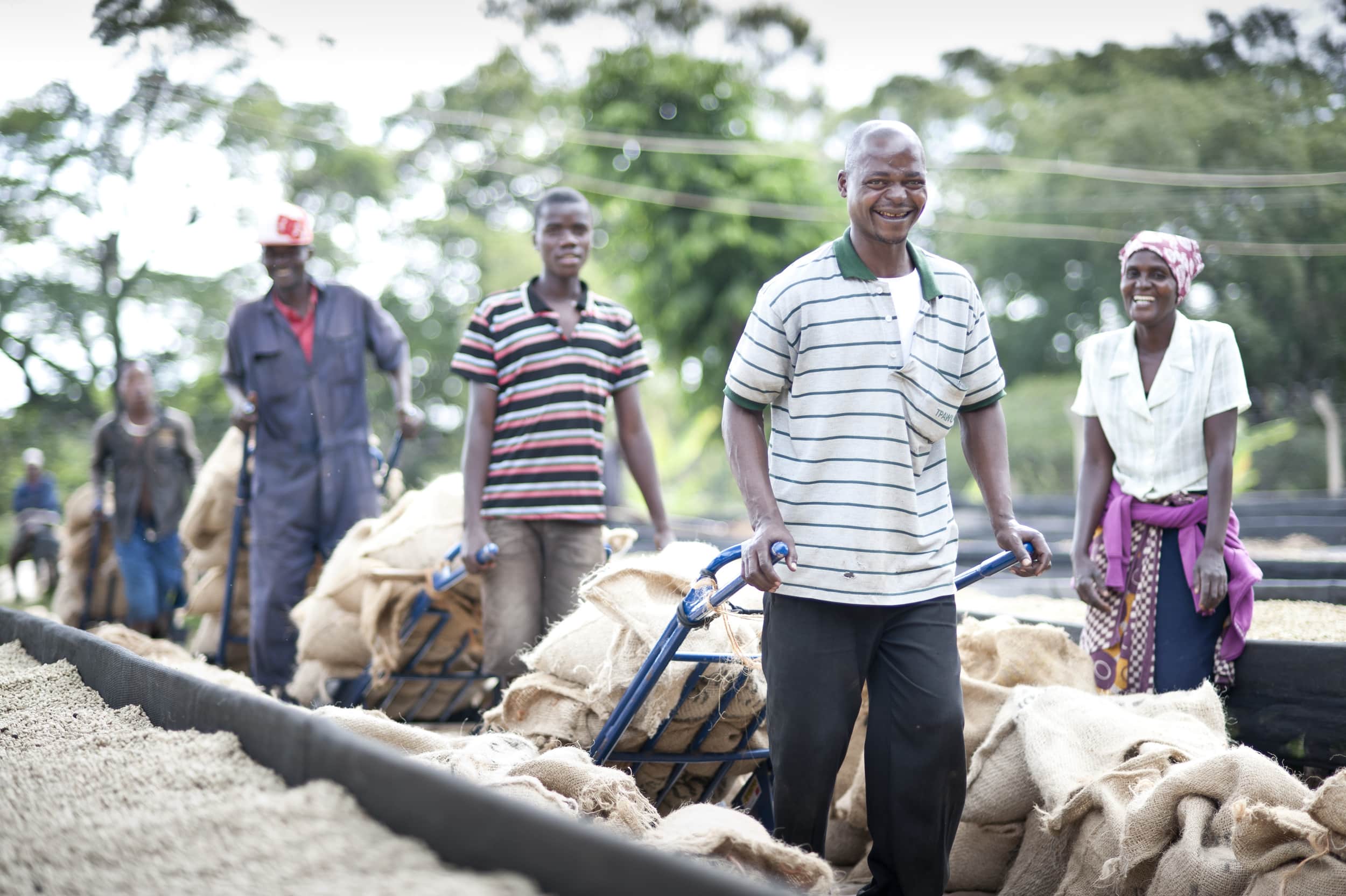
ACKNOWLEDGEMENTS & REFERENCES
Thanks to all our precious partners in Ethiopia, Kenya, Rwanda, Burundi & Tanzania for the input & collab.
CUPRIMA – ETHIOPIA – What to expect from next crop 2022/2023?
EFICO – ETHIOPIA – Origin snapshot
CUPRIMA – BURUNDI – What to expect from next crop 2022/2023?
CUPRIMA – RWANDA – What to expect from next crop 2022/2023?
EFICO – ETHIOPIA – Birthplace of Coffee
